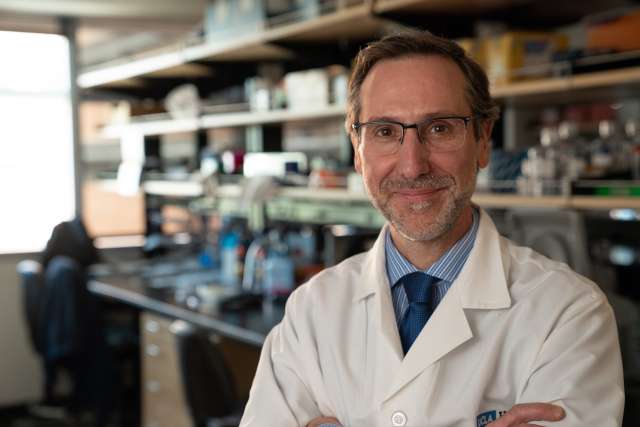Antoni Ribas, MD, PhD, has received a renewal of an Outstanding Investigator Award from the National Cancer Institute (NCI). The $4.2 million grant over the next seven years will allow Ribas and his team to continue their innovative research on metastatic melanoma.
Ribas had received the same R35 award from the NCI for the previous seven years of work. His new application is titled “Next Generation Cancer Immunotherapies to Defeat Melanoma” and will support research to analyze mechanisms of response and resistance to cancer immunotherapies, develop combinations to overcome resistance and study how to extend the antitumor activity of the immune system. The NCI Outstanding Investigator Award supports investigators with outstanding records of productivity in cancer research by providing extended funding stability and encouraging investigators to continue or embark on projects of unusual potential in cancer research.
“I am honored to receive this new R35 award,” Ribas said. “It will allow to expand our work analyzing mechanisms of melanoma response and resistance to cancer immunotherapies, and hopefully develop new treatment avenues to overcome resistance.”
In addition to leading the Tumor Immunology Program at the UCLA Jonsson Comprehensive Cancer Center and being a member of the Broad Stem Cell Research Center, Ribas is a Professor of Medicine, Professor of Surgery, and Professor of Molecular and Medical Pharmacology at the David Geffen School of Medicine at UCLA. He’s also a past president of the American Association for Cancer Research.
Among other accomplishments, Ribas led the clinical program that demonstrated the efficacy of the cancer immunotherapy drug pembrolizumab (marketed as Keytruda) for the treatment of patients with melanoma, which is now used in over twenty cancer indications.
The Outstanding Investigator Award will provide Dr. Ribas up to $600,000 in direct costs per year for 7 years, allowing substantial time for his laboratory to take greater risks and be more adventurous in its research.




